
About this Event
We are excited to return to the WVU Canady Creative Arts Center in Morgantown, WV as part of the .
GUEST ARTISTS: Jim Lauderdale, Sister Sadie, Crys Matthews, Jedd Hughes, and Critton Hollow
Since 1983, Mountain Stage has been one of the most beloved programs in public radio history. Eclectic, authentic and unpredictable, the show’s varied guests have included iconic artists from John Prine and Townes Van Zandt to Wilco and Phish. Under the leadership of Grammy Award-winning country and bluegrass star Kathy Mattea since 2021, Mountain Stage continues to bring surefire energy and music discovery to parts known and unknown.
Produced by West Virginia Public Broadcasting and distributed by NPR Music, each two-hour episode is recorded in front of a live audience and can be heard every week on nearly 300 stations across America, and around the world via NPR Music and mountainstage.org
Tickets: $27 – $39, Students $10-$39
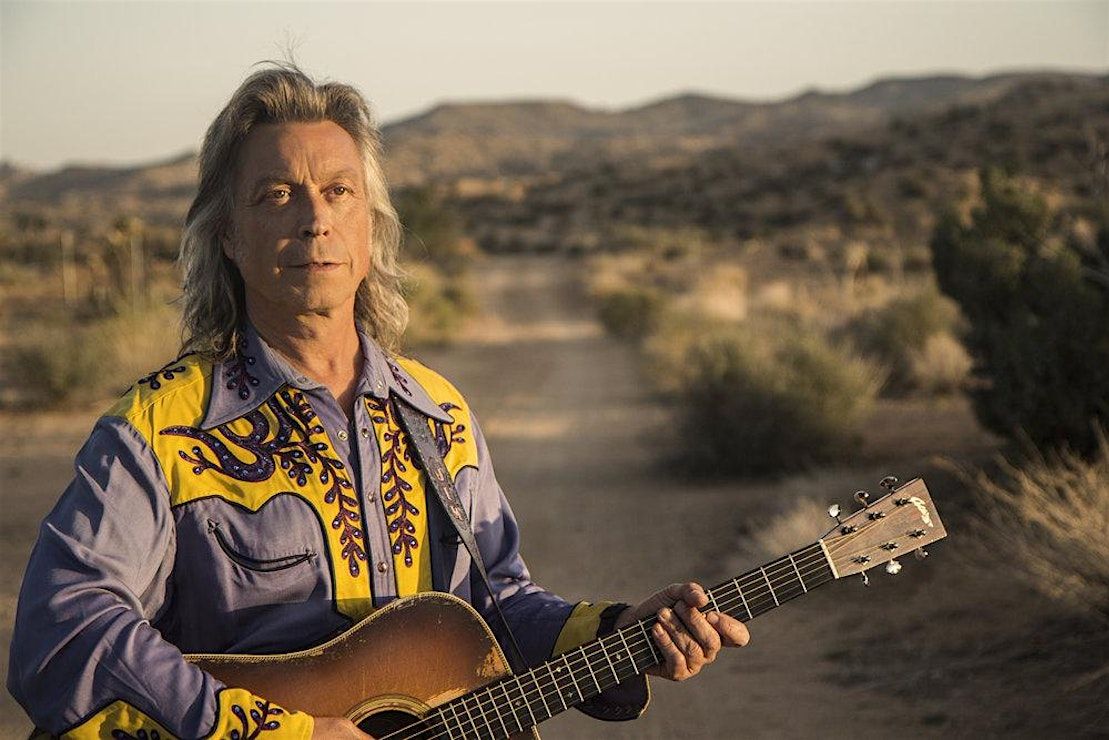
Jim Lauderdale
At any given time, you’re likely to find Jim Lauderdale making music, whether he’s laying down a new track in the studio or working through a spontaneous melody at his home in Nashville. And if he’s not actively crafting new music, he’s certainly thinking about it. “It's a constant challenge to try to keep making better and better records, write better and better songs. I still always feel like I'm a developing artist,” he says. This may be a surprising sentiment from a man who’s won two Grammys, released 34 full-length albums, and taken home the Americana Music Association’s coveted Wagonmaster Award. But forthcoming album Game Changer is convincing evidence that the North Carolina native is only continuing to hone his craft.
Operating under his own label, Sky Crunch Records, for the first time since 2016, Lauderdale recorded Game Changer at the renowned Blackbird Studios in Nashville, co-producing the release with Jay Weaver and pulling from songs he’d written over the last several years. “There's a mixture on this record of uplifting songs and, at the same time, songs of heartbreak and despair—because that's part of life as well,” he says. “In the country song world especially, that's always been part of it. That’s real life.”
Lauderdale would know: He’s been a vital part of the country music ecosystem since 1991, when he released his debut album and began penning songs for an impressively long roster of country music greats. “When I was a teenager wanting to be a bluegrass banjo player, I never would have imagined that I would get to work with people like Ralph Stanley, Robert Hunter, Loretta Lynn, George Jones, Emmylou Harris, Elvis Costello, Lucinda Williams and John Oates ,” he muses. “Getting to work with them inspires me greatly to this day, and I know it always will.”
From rollicking guitar riffs on “That Kind of Life (That Kind of Day)” to the slow, sweet harmonies of “I’ll Keep My Heart Open For You,” Game Changer shows off Lauderdale’s ingenuity as a singer, songwriter, and producer—while reestablishing him as one of Americana’s most steadfast champions. "Country music is constantly evolving, but I'll always have a soft spot in my heart for steel guitar and a Telecaster," he says. "I have done my job on this record if people who love classic country feel like they can put it on, or have it in their collection, and it would fit right in."
Respecting the past doesn’t mean he’s not breaking new ground. “We’re All We’ve Got,” a co-write with Mary Gauthier and Jaimee Harris, offers a timely message about healing torn relationships at home and across the world. And “Friends Again,” a grinning number about rekindling a friendship, is fresh and forward-looking. At every turn, Lauderdale’s collaborative spirit and genuine love for the creative process reveal themselves in thoughtful, well-crafted songs sure to stand the test of time. "When everything works right, it's just magical to be able to hear them back," he says. "You feel, at least for those three-and-a-half minutes, like life makes sense.”
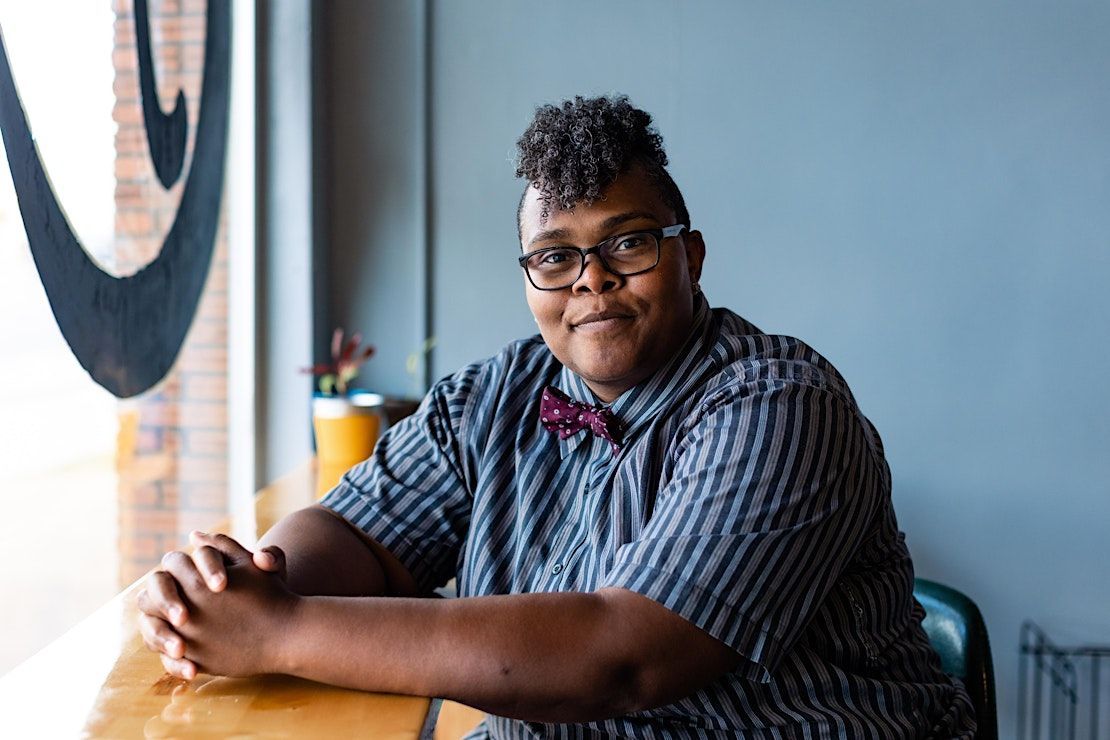
Crys Matthews
A troubadour of truth, Nashville resident Crys Matthews is among the brightest stars of the new generation of social justice music-makers. An award-winning, prolific lyricist and composer, Matthews blends Country, Americana, Folk, Blues, and Bluegrass into a bold, complex performance steeped in traditional melodies punctuated by honest, original lyrics. She is made for these times.
Of Matthews, ASCAP VP & Creative Director Eric Philbrook says, “By wrapping honest emotions around her socially conscious messages and dynamically delivering them with a warm heart and a strong voice, she lifts our spirits just when we need it most in these troubled times.” Justin Hiltner of Bluegrass Situation adds, her gift is a "reminder of what beauty can occur when we bridge those divides." In her own words, Matthews says her mission is: "to amplify the voices of the unheard, to shed light on the unseen, and to be a steadfast reminder that hope and love are the truest pathways to equity and justice." Her new album is an embodiment of and a testament to that mission.
When Matthews attended a panel at Folk Alliance International in February of 2024, she heard a Scottish Folk artist inquire as to how many record labels pursue what the artist referred to as "music from my tradition," four words that intrigued Matthews. "I loved the idea of that. It seems like the best way to talk about music: what is your tradition, who are your people, what is the fabric of you?"
A daughter of the South by way of Nashville now and North Carolina forever, and the self-proclaimed poster child of intersectionality, Matthews is boldly answering those questions on her new album aptly titled Reclamation. Recorded in Nashville, TN at Sound Emporium Studios, Reclamation was produced by Levi Lowry (co-writer of Zac Brown Band's hit song Colder Weather). The project features her partner on and off stage Heather Mae, her friends and fellow singer-songwriters Kyshona, Melody Walker, and Chris Housman, and some of the best musicians in Music City like Megan Coleman, Megan Elizabeth McCormick, Ellen Angelico, Ryan Madora, Jen Gunderman, and Michael Majett.
"This album is both sonically and ideologically the fullest representation of who I am as an artist and as a human," she says. A preacher's kid, a Black woman, a Butch lesbian, and a proud Southerner who sings social justice music right alongside 'traditional' Country and Americana music, Matthews is reclaiming not just of the space Black artists have been denied in Country and Americana music, not just of the space LGBTQ people have been denied in communities of faith, not just of the autonomy women have been denied over their own bodies, she is reclaiming the South that raised her
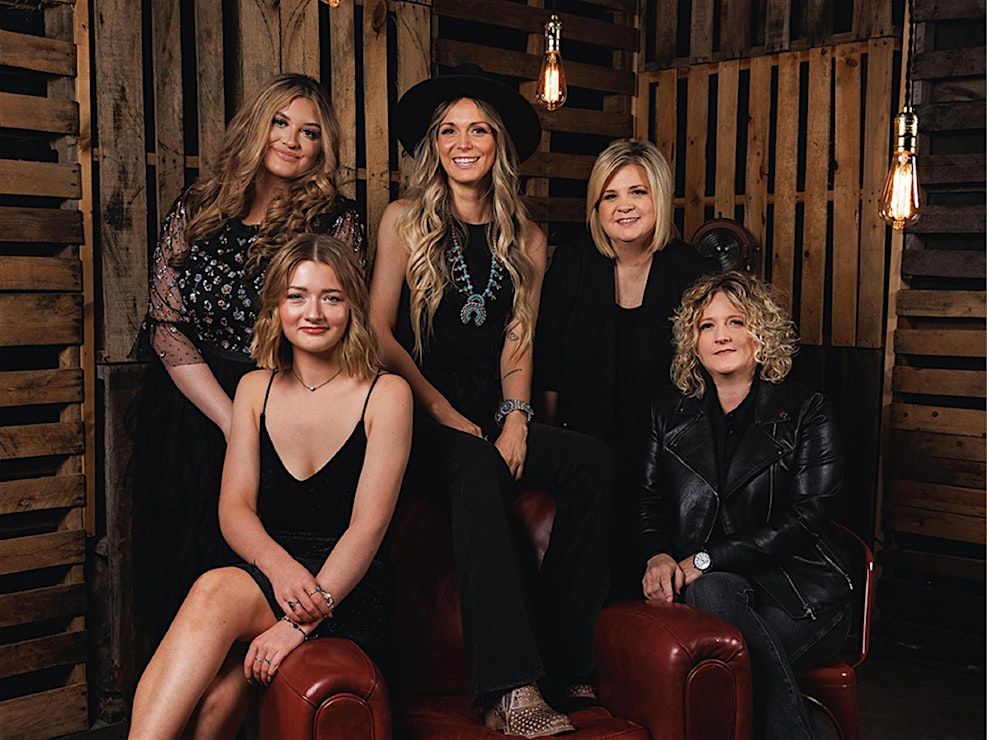
Sister Sadie
Three-time IBMA Vocal Group of the Year, as well as Entertainer of the Year and a Grammy nominee for Sister Sadie II, the five woman band has morphed from its origins as a bluegrass supergroup into a multi-generational collection of females committed to pushing the envelope in terms of material and playing. Starting from a traditional bluegrass platform, they bring a vast passion for songs and songwriters to the table, creating music for the next wave of American roots/acoustic sounds. Nashville’s SCENE alt-weekly named them a Best of the Year, offering, “They play hard, laugh hard and sail harmonies like paper airplanes,” while the Bluegrass Situation raved of No Fear, “The title itself could be an ode to the group’s unrelenting urge to hop genre fences – from bluegrass to country to pop and back again – it’s also a nod to the resiliency of the band itself.”
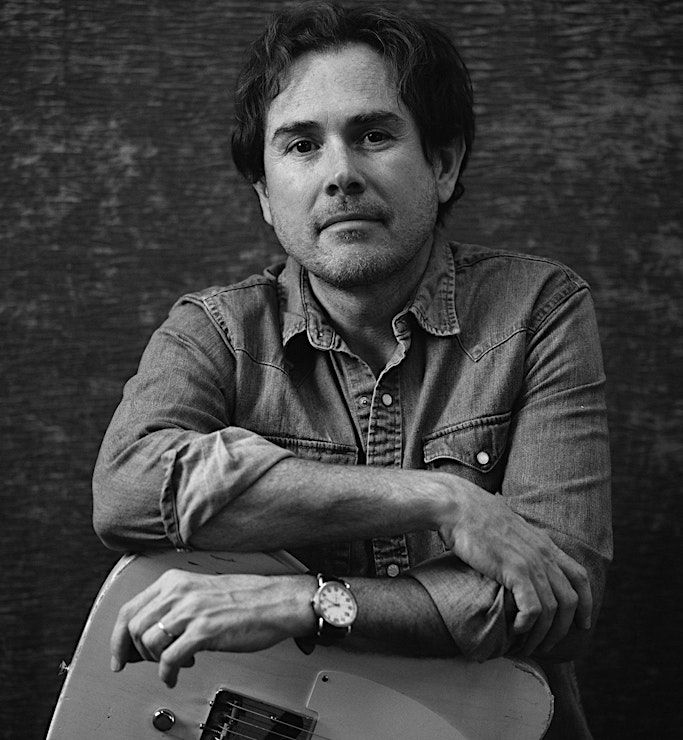
Jedd Hughes
Jedd Hughes describes life with transcendental precision: a sleepless night in Modesto; a childhood on the edge of the sprawling Australian desert; an old friend whose wit is still razor-sharp, finally at peace. Listening to Hughes, you don’t just picture a place or a person. You experience them.
It makes sense, then, that Hughes’s technicolor world has often felt too formidable for three verses and a chorus. He couldn’t settle for making music that was anything but all of him, and so we waited––waited on the kid legends befriended and believed in––to find a way to capture the smoky stories and sounds that danced and beckoned to him, just out of focus.
The wait is over. In the summer of 2019, Hughes will release WEST, his years-anticipated solo album of his expansive roots-anchored rock-and-roll. Hughes’ easy tenor and masterful guitar playing are worthy companions to his songwriting that transports listeners to dark corners and astral visions, evoking desperation, restlessness, and poignant recognition. The record is a triumph, both personally and professionally. “I came over here to make my own music––that was my dream,” Hughes says. “I started suppressing that dream when things went wrong. Then to make my own music, I had to figure out what that even was. I had to get some confidence, to try it again, and believe in myself.”
From the outside looking in, it can be difficult to see that things went wrong at all. A long list of musical giants that jumps generations and artistic bents have long-since counted Hughes as a trusted collaborator and inspiration, including Patty Loveless, Rodney Crowell, Emmylou Harris, Buddy Miller, Vince Gill, Ryan Bingham, Sarah Jarosz, the late Guy Clark, Jim Lauderdale, Brandy Clark, and more. He toured as a guitarist with Crowell and Harris off and on for years, and became one of Nashville’s most sought-after players. “Yesterday, I played a session with Emmylou, Buddy Miller, and Sam Bush,” he says. “I was just sitting in the room, thinking, ‘How the hell did I get from the middle of nowhere to moments like these?’”
For Hughes, the middle of nowhere was Quorn, Australia, his tiny hometown hugged by the Flinders Ranges, the Mars-red mountains that stretch into the Outback. “Everything seemed so much bigger,” Hughes says. “The sunsets were so drastic. Because it was so far out, there was no ambient light. There was no sound other than these epic 10,000 cockatoos flying over in massive flocks to the gum trees at sundown. You’d hear them coming from miles away. It only rained a few times a year. So anytime it rained, it was like, ‘Oh my God. It’s raining! Go! Watch the rain!’” He laughs.
Hughes picked up the guitar at about 7 years-old––his father encouraged him, and his home was filled with music. His parents loved hardcore and outlaw country––Johnny Cash, Willie Nelson, Waylon Jennings––and his older brother loved Led Zeppelin and 90s grunge. Hughes loved it all. At age 8, he had a revelation. “I saw a guy named Bill Chambers playing an old Fender Telecaster, and it was just the greatest thing I’d ever heard,” he says. “That was when I decided I was going to take guitar a lot more seriously.” He dropped out of high school at 16, began touring as a guitarist with an Australian country singer, and never looked back.
Paid in cash that he stashed in his freezer, Hughes saved up enough money to make it to Levelland, just west of Lubbock, Texas, where he attended South Plains College. Then, masquerading as a tall, lanky hit songwriter, fate stepped in. Terry McBride came down from Nashville to conduct a workshop at South Plains. Impressed with Hughes, McBride encouraged him to move to Nashville and promised to help in any way he could. “I came to Nashville in 2002, in the middle of March,” Hughes says. “It was still cold. I was terrified. I was so broke."
Hughes had to find a job. McBride made good on his promise and arranged for Hughes to audition for a spot as acoustic guitarist and harmony singer for Patty Loveless. Hughes nailed it. His first gig in Nashville was at the Grand Ole Opry with Loveless, then Merlefest the following weekend. He played with Loveless for two years, writing songs with heavy hitters whenever he was home. A record deal with MCA followed, and his debut album dropped in 2004. “It all just kind of fell into place, which is funny, because it all fell out of place just as quickly as it fell into place,” Hughes says. MCA merged with another label, the inherited staff was fired, and just like that, he was dropped.
Hughes tried to rally. Friend and mentor Rodney Crowell took him out on the road as a guitarist, and Hughes signed a new deal with Capitol. But the record he made for them was never released, and Hughes asked out of his deal. He continued to play with others. “All the while, I was daydreaming of making my own music, but didn’t know how to do it––didn’t have the confidence to do it,” he says. Tired of a Nashville that had burned him twice, he sought refuge in Los Angeles. “I was just so lost and disenchanted with the whole thing,” he says. “I didn’t know myself––didn’t know what all those years of trying had meant. I never thought I’d come back. I remember driving away, thinking, ‘Thank God that’s over.’ But then things got worse in LA,” he pauses and laughs, sounding a bit sad. “Because I wasn’t dealing with anything.”
But Hughes stopped running. He returned to Nashville and dug in. “I got sober and have been now for over three years,” he says. “As I did that and started to work through some of those things that were lingering in the back of my mind, I started to write songs that I liked again. The first one was called ‘Animal Eyes.’” A windfall ensued, and the songs haven’t stopped coming. “I just found this little nugget of confidence and a piece of music I believed in and had fun playing,” he says. “I started to feel like maybe I could play my own music again––which doesn’t seem like it would be a hard thing, but for me, it really was.”
Ultimately, that’s what Hughes is, most of all: a storyteller. “I hope these stories in these songs resonate with people,” he says. “I hope people listen to it as a record and can see some of the things I saw.”
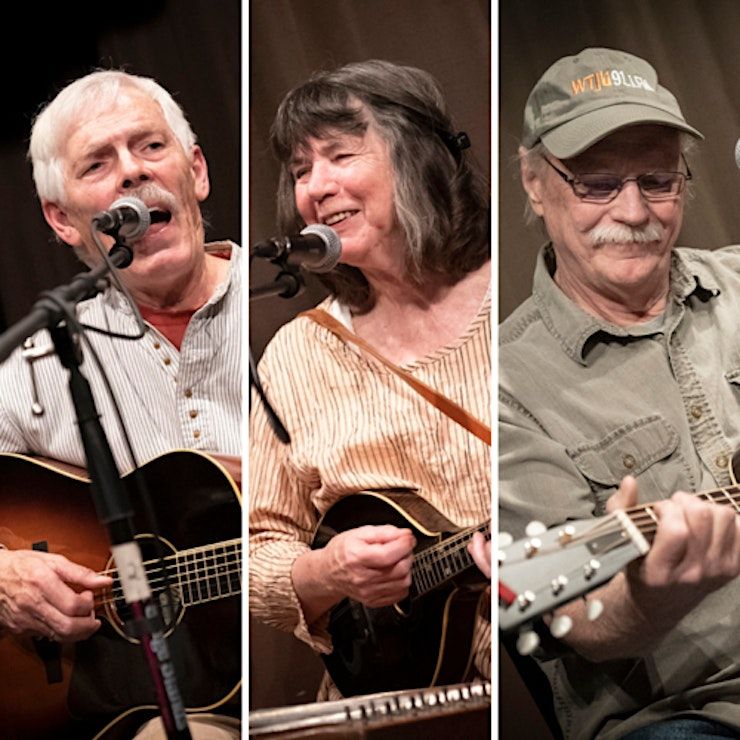
Critton Hollow
Since 1975, the Critton Hollow String Band has brought traditional American music to audiences throughout the United States, Canada, Japan, Ireland, and Scotland. With fiddle, hammer dulcimer, banjo, and guitar, the band tends a stable of songs from the first settlements of Appalachia to the best of contemporary American folk music. Songs that express a range of experience that can make you laugh or make you cry and occasionally do both at the same time, ballads that tell stories of bad men and disappointed lovers. Instrumentals that will make you want to get up and dance or sit back and listen.
The three members of the band - Joe Herrmann, Sam Herrmann, and Joe Fallon - combine precise instrumentation, melodic interplay, and three part harmony to create a warm and engaging sound. As Mitch Podolak, the artistic director of the Winnipeg Folk Festival, commented, they have a "unique ability to make their audience feel a part of their performance."
The Critton Hollow String Band has played at numerous folk music venues, festivals, and concerts including the Birchmere Music Club, the Kennedy Center, the Philadelphia Folk Festival, the Carter Family Fold, the Vancouver Folk Festival, Clearwater's Hudson River Revival, and the Upper Potomac Dulcimer Festival.
They have appeared on radio shows such as Mountain Stage, Voices from the Mountains, and Live at the Birchmere, and on television shows such as Live at Meyerhoff Symphony Hall, Music from Home, and the Today Show. The band has seven CDs: Gather 'round (2009), The Dulcimer Collection (2000), Cowboys and Indians (1995), Great Dreams (1988), By and By (1985), Sweet Home (1983), and Poor Boy (1979).
Event Venue & Nearby Stays
WVU Creative Arts Center - Lyle B. Clay Theatre, 1436 Evansdale Dr. , Morgantown, United States











